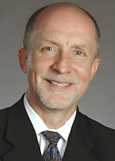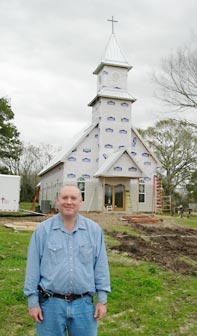Book Reviews
Posted: 2/02/07
Book Reviews
Beyond Racial Gridlock: Embracing Mutual Responsibility by George Yancey
(IVP Books)
University of North Texas sociologist George Yancey is willing to ask the hard questions and talk about the tough issues that build barriers between races in this country. And he does it out of love of God and love for God’s people. This is a book written mainly for the church—that it would take the lead in racial reconciliation.
Yancey critiques four major models the secular world uses to try to fix racial problems in America. These approaches don’t work, he says, because they don’t take into account that sin is a reality and that humanity is full of it—depraved.
 |
| What are you reading that other Texas Baptists would find helpful? Send suggestions and reviews to books@baptiststandard.com. |
As an African-American, Yancey adds to the humble tone of the book by vulnerably sharing some of his own hurts and sinful tendencies that give insight into the pains, fears and reactions of other minorities. Only by the different races listening to each other, owning up to sin and embracing mutual responsibility can Christians grow together and change the course of the past, he notes.
If pastors and lay leaders were to read this book and humbly take its principles to heart, we could see a change in race relations in this country, and our churches could be a mulitiracial witness to the world of reconciliation, healing and grace—all to the glory of God!
Greg Bowman, student minister
First Baptist Church
Duncanville
Lending Your Leadership: How Pastors are Redefining Their Role in Community Life by Nelson Granade
(Alban Institute)

Lending Your Leadership is about pastors and their leadership in the community. Granade, pastor of First Baptist Church in Wilkesboro, N.C., makes the case that the ministry of the church and the pastor is extended by the pastor’s community leadership.
Granade writes with detail and insight about leadership in our fast-changing culture. He combines background study and personal experience.
This North Carolina pastor maintains that the larger issues of the community call the pastor to be involved in more than just the role of critic or complainer.
Pastors’ schedules often leave little time for community in-volvement, and some are not inclined to that role, but the author makes the biblical and theological case for this broader role.
Bill Blackburn, president
Partners in Ministry
Kerrville
I Saw Him in Your Eyes by Ace Collins
(Vision Press)
Although I devoured I Saw Him in Your Eyes in one sitting, I wish I had savored each chapter, using them as 20 inspiring daily devotionals.
Ace Collins profiles such well-known Christians as television and movie star Dale Evans Rogers; Florida State University football coach Bobby Bowden; singers Larry Gatlin, Pat Boone, Charlie Daniels, Don Reid, Woody Wright and Cynthia Clawson; former Miss Alabama Denise Davis; Chick-fil-A founder Truett Cathy; authors Karen Kingsbury, James Scott Bell, Crystal Bowman and Terri Blackstock; ministry leaders Nancy Coen (Servant Ministries), Richard Stearns (World Vision), Jerry Burden (Gideons), John Cathcart (World Missionary Evangelism) and Fern Nichols (Moms in Touch).
Then he tucks into the book the not-so-famous Elizabeth Swank and Ron Bal-lard, a Sunday school teach-er and her paralyzed student, who tore down physical barriers for the handicapped in Fort Worth and throughout the United States.
However, Collins doesn’t dwell on the accomplishments of the famous. The book’s subtitle reads “everyday people making extraordinary impact.” So instead, he tells the stories of the everyday people who impacted them—the people in whom they saw Jesus—from family members to pastors, from acquaintances to unassuming church members.
Collins writes with assurance that as everyday people we can make an extraordinary impact if we, too, reflect Jesus in our eyes.
Kathy Robinson Hillman,
former president
Woman’s Missionary Union
of Texas
Waco




